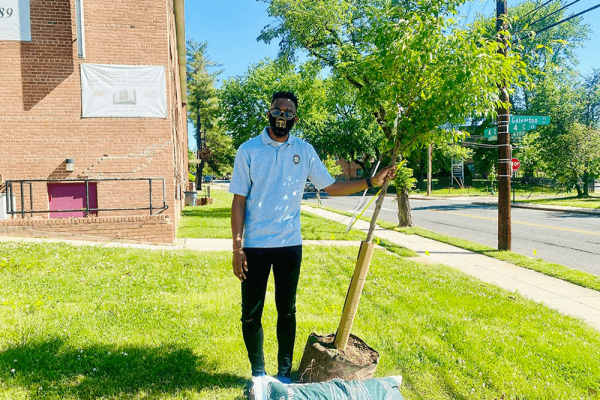Ted Lasso season three has been unbelievable, and not just because season two ended with the destruction of the series’ defining image: a yellow paper sign with the word “BELIEVE” scribbled across it.
I know some Christians do not fully share my theological convictions about gender and sexuality, but on issues of human dignity and civil rights, the church should be firmly united: Transgender and nonbinary siblings are God’s children made in God’s very image and likeness. Prohibiting lifesaving medical care, tolerating discrimination, or denying someone the ability to use their name is wrong; you cannot deny people those rights because you disagree with their beliefs about gender or sexuality. Christians should be standing in the breach in defense of the full humanity, dignity, and rights of their trans siblings.
Asexuality and aromanticism describe those whose orientations are often defined by lack and rarity. We’re atypical in that we don’t experience sexual and/or romantic attraction, or when we do, it’s the exception to the rule or under certain conditions. We’re inconvenient to remember — on all sides of the political and religious spectrums.
Historically, there have been many Catholics who have pushed back against gender norms. But like modern conservatives who focus on the outrageous aspects of the Sisters of Perpetual Indulgence while ignoring the group’s tireless work caring for the sick, homeless, and poor, the Catholic hierarchy has also attempted to mute the stories of gender-nonconforming people throughout its history. And in doing so, the church hierarchy has often ignored the acts of mercy so central to Catholic teaching.
As the school year sets at St. Thomas More Academy in southeastern Washington, D.C., students spring into action for a day of tree-tending. Eighth graders at the Catholic elementary school swap books and computers for shovels, rakes, and hoses and head outside to tend to the more than six dozen growing trees around their campus. They remove old mulch, add some new, and water each of the trees.
Children are already exploring sexuality and religious skepticism in complex and important ways — so our films and books should, too.
As lawmakers on Capitol Hill argue about the national debt, the Bible verse that’s been on my mind is Proverbs 3:27: “Do not withhold good from those to whom it is due, when it is in your power to act.”
The Senate of my home state, Texas, recently made news for passing three bills designed to bring Christianity into public schools. As I told NewsNation when they interviewed me earlier this week about the proposed legislation, I think this is an example of a government attempting to force beliefs on people. Yesterday, the State House failed to pass a law that would’ve required the Ten Commandments to be displayed in public schools. SB 1515 would’ve required that “a public elementary or secondary school shall display in a conspicuous place in each classroom of the school a durable poster or framed copy of the Ten Commandments.”
Republicans in Texas argued that this move would reinforce essential American identity because America was founded on so-called “Judeo-Christian” principles. According to the Texas Tribune, Republican Lt. Gov. Dan Patrick defended the law by saying, “Bringing the Ten Commandments and prayer back to our public schools will enable our students to become better Texans.”
What does it take to survive the wrath of gods? This has been a perennial question for Star Lord, Rocket, Gamora, Drax, Groot, Mantis, Nebula, and the others who have found themselves drawn into the orbit of the Guardians of the Galaxy.
After Title 42 restrictions at the U.S. border ended on May 11, debates about immigration have heated up again — focused mostly on reform, border security, or refugees’ needs.
But the treatment of immigrants is deeply intertwined with religious freedom as well. As a scholar of religious ethics who studies immigration, I am interested in recent cases that highlight growing tensions between immigration policies and religious groups’ commitments to pastoral and humanitarian care.









